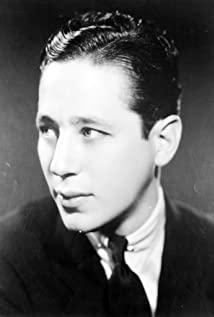Ross Alexander
The tragically brief life of fresh-faced, boyishly handsome Ross Alexander, who seemed to have everything going for him, plays these days like a bad Hollywood movie. Alexander was a charming, highly engaging young actor whose pleasant voice and breezy personality aided greatly in his transition from Broadway teen player to young adult Warner Bros. film actor. His peers would include such Warner stalwarts as Ruby Keeler, Dick Powell and Errol Flynn. Off-camera, however, Ross, a closeted homosexual, became an acutely self-destructive young man whose career instability and domestic tragedy would take its toll. The tormented Ross ended his own life at age 29.
Ross Alexander was born Alexander Ross Smith in Brooklyn, New York, to Maud Adelle (Cohen) and Alexander Ross Smith, a leather merchant. Raised in Rochester, New York, he pursued both drama and athletics in high school (soccer, swimming) and sidelined in little theater productions in town. In between he took his first Broadway bow as a young teen in Blanche Yurka's long-running comedy success "Enter Madame." He eventually moved back to New York City following schooling and began to build up his stage resume in stock companies. On Broadway he showed a modicum of promise in such plays as "The Ladder" (1926) and "Let Us Be Gay" (1929). The latter play introduced Ross to producer John Golden and marked an immoderate two-year association which would include the plays "After Tomorrow" (1930) and "That's Gratitude" (1930). Paramount apparently saw Ross' potential and started him off in pictures with The Wiser Sex (1932), but nothing happened. Continuing on Broadway with "The Stork Is Dead" (1932), "Honeymoon" (1932), "The Party's Over" (1933) and "No Questions Asked" (1934), he was re-noticed for films, this time by Warner Bros.

